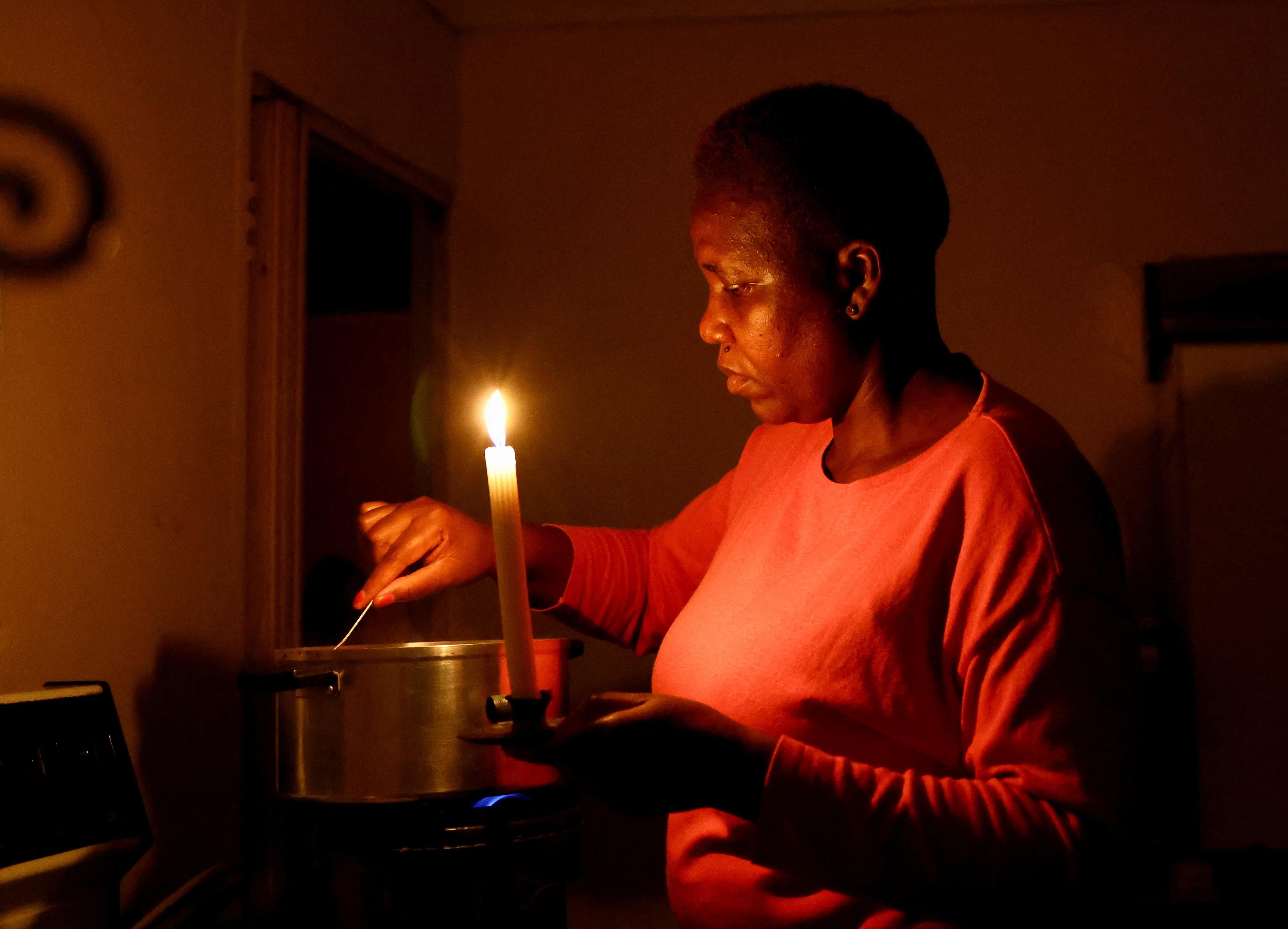Things are dark in South Africa right now, both metaphorically and literally. Though not new, rolling blackouts have worsened in recent months, disrupting every aspect of daily life. With the situation near breaking point, President Cyril Ramaphosa declared a state of disaster in recent days, which allows the government to bypass bureaucratic hurdles to get stuff done.
Why are things so dire in Africa’s most industrialized country, and what’s the government’s plan – if any – to fix it?
Lights out. The current crisis is centered largely on South Africa’s collapsing state-run electricity grid, which relies on coal for 85% of its generation capacity. Blackouts and load shedding occur when demand outstrips supply, forcing the utility company to cut access – which has been happening regularly for years.
Meanwhile, Eskom, the state-owned energy company, which runs 90% of the country’s electricity, has long been plagued by government corruption, cronyism, and mismanagement – most of which occurred under President Jacob Zuma, who is now facing a host of corruption charges. Consider that since 2007, no fewer than 14 people have been tapped to lead the energy agency, and they have left Eskom in rough shape, with the body now $26 billion in the red.
“Over the last 15 years there’s really been a deterioration in being able to add generation capacity to the national grid – or adding new sources of capacity whether that's nuclear or renewable energy,” says Eurasia Group expert Ziyanda Stuurman.
While the problem spans the African National Congress’ time in power, which has been plagued by corruption scandals, energy access has long been an issue in South Africa. “The problem stretches back to South Africa's history of apartheid,” Stuurman says, adding that “electricity provisions were never made available to the majority of citizens in the country.”
What’s more, as a result of political meddling and cumbersome bureaucratic hurdles to approving new contracts, some South Africans are left in the dark for up to 15 hours a day. Indeed, things have gotten so bad that morgue operators say that bodies are decomposing faster than they can bury them.
There are also growing concerns over food security. Case in point: South African poultry farmers were forced to cull 10 million chickens because abattoirs couldn’t function amid constant power cuts.
Clearly, the failing power grid is having a big impact on domestic productivity. But economic output is also being curtailed by yet more crumbling infrastructure: the railway system.
Road to nowhere. The state-run freight railway system (never a sexy topic) is also in tatters. The system, called Transnet, is in such bad shape due to years of government underinvestment and corruption that companies are having to turn to alternate transport systems – like trucking goods to Mozambique. Indeed, one forensic auditor told a government commission that “Transnet accounted for 72% of all irregularly awarded contracts” during Zuma’s time in power.
This dysfunction of the freight system is a catastrophe for South Africa’s robust mining sector, which is having a rough time getting goods to export terminals on the coast. And as metals, gems, and minerals account for most of South African exports, the state’s failure to fix the transport system is also having a downward effect on the entire economy. According to one South African academic, lost coal exports as a result of transport delays cost South African companies around $4.7 billion last year, while South Africa’s central bank now estimates that the economy will grow by just 0.3% in 2023, down from 2.5% in 2022.
But why is the government so hesitant to give up any control of these state-owned enterprises and let the markets do their thing? “Given the history of apartheid and particularly the neglect of poor Black and working-class communities in South Africa,” Stuurman says, “there’s a fear that inequality would be exacerbated if and when privatization of electricity generation and supply comes into force.”
So what’s the plan? The government says that dealing with the energy crisis is priority number one and has set out steps to reduce load shedding. This includes cutting red tape to attract more private investment by reducing the timeframe for authorization of new contracts to 57 days, down from more than 100. However, the problem is, as Stuurman points out, that there are now at least four different ministries charged with overseeing power grid reform, which hardly consolidates the process.
The geopolitics of it all. Given that Africa is a frontier in the ongoing rivalry between the US and its rivals – Russia and China – Washington is vying to play fixer in South Africa, having previously committed, along with European allies, $8.5 billion to help South Africa's green transition. Still, Pretoria needs much more than that to get itself out of its deep hole.
